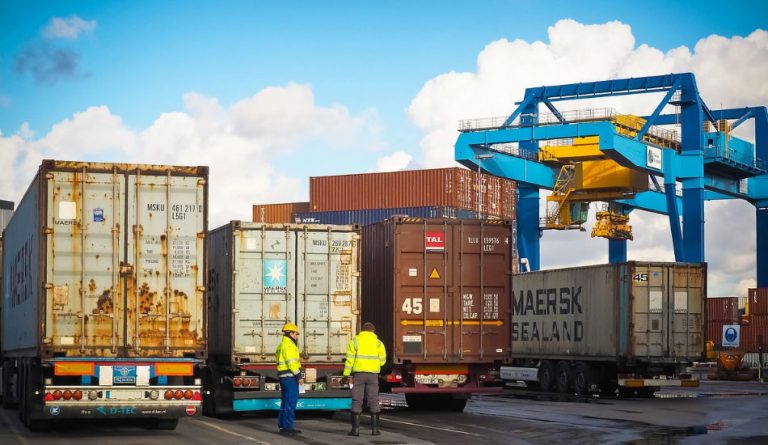The Chinese Communist Party (CCP) has not been fulfilling its agreements in the Sino-U.S. phase one trade deal signed in January 2020, according to data released by the Peterson Institute of International Economics (PIIE).
The Economic and Trade Agreement Between the United States of America and the People’s Republic Of China: Phase One went into effect in February and required China to increase its trade purchases of U.S. goods and services by a combined $200 billion across 2020 and 2021 from their 2017 levels.
PIIE’s figures were calculated based on data obtained from the U.S. Census Bureau compared against the Phase One Agreement’s annual targets, prorating the figures on a per-month basis.
Data shows the CCP committed to purchasing $159 billion worth of U.S. exports by the end of 2020. As of November, China was slightly over half that amount at $82 billion.
Breaking the data down by sector, Beijing promised to purchase $33.4 billion in agriculture, $99.4 billion in manufactured goods, and $26.1 billion in energy. As of November, the fulfilled amounts were just $22.5 billion, $51.4 billion, and $8.1 billion respectively.
Success
You are now signed up for our newsletter
Success
Check your email to complete sign up
The article notes that China’s customs department has scheduled release of year-end data for Dec. 25, but that the Institute will be closed for the holidays until Jan. 4, 2021.
The phase one trade deal ended a year-and-a-half trade war between the U.S. and China that also ended Beijing’s tariffs on U.S. energy exports. The increase in China’s U.S. imports was the centerpiece of the deal, alongside pledges from the CCP that it would respect intellectual property law in a number of key areas.

Increases to energy imports was the big ticket item in the promise to increase imports. 2020 was to see a $19 billion increase and 2021 was to see a $34 billion increase, a 240 percent and 440 percent increase respectively. A far cry from the total $8.1 billion imported as of November.
Some pundits have postulated that the CCP virus pandemic and its impact on China had suppressed demand for U.S. oil and gas as global lockdowns and measures through the entire world dampened the key energy economy.
However, according to Foreign Policy, China increased its imports of crude from Saudi Arabia and Russia during the first quarter of 2020, while it waited until March 2 to even remove its tariffs from U.S. oil and gas.
China imported a meager $320 million worth of oil from the U.S. in March.
Because of the shortfall of oil imports in January and February, and the paltry March fulfillment of their contract, in order for the CCP to meet the Phase One Agreement’s target, it would have had to purchase approximately 3 million barrels of oil each day, which is the size of the total of all U.S. crude exports in 2019.
The issues don’t lie only with energy, however. In June, the CCP reportedly told state-run agricultural firms to halt U.S. soybeans after the Trump administration said it would revoke Hong Kong’s special status as a result of the Communist Party reneging on its quarter-century-old “one country, two systems” agreement with the UK earlier this year.
According to a May article by the Center for Strategic and International Studies, China had already shorted its 2019 imports of manufacturing and energy by 11.7 and 33.3 percent respectively.
The report projected a total shortfall to close 2020 of approximately $129 billion.
Scott Kennedy, a China expert at the Center for Strategic and International Studies in a June interview with Foreign Policy said that the trade deal on its own would not stabilize the relationship between the Trump administration and the Party. However, “if you remove the deal, then that is further evidence that both sides are throwing up their hands and see the relationship in purely competitive terms with nothing on the other side of the scale,” he said.
Follow us on Twitter or subscribe to our weekly email














